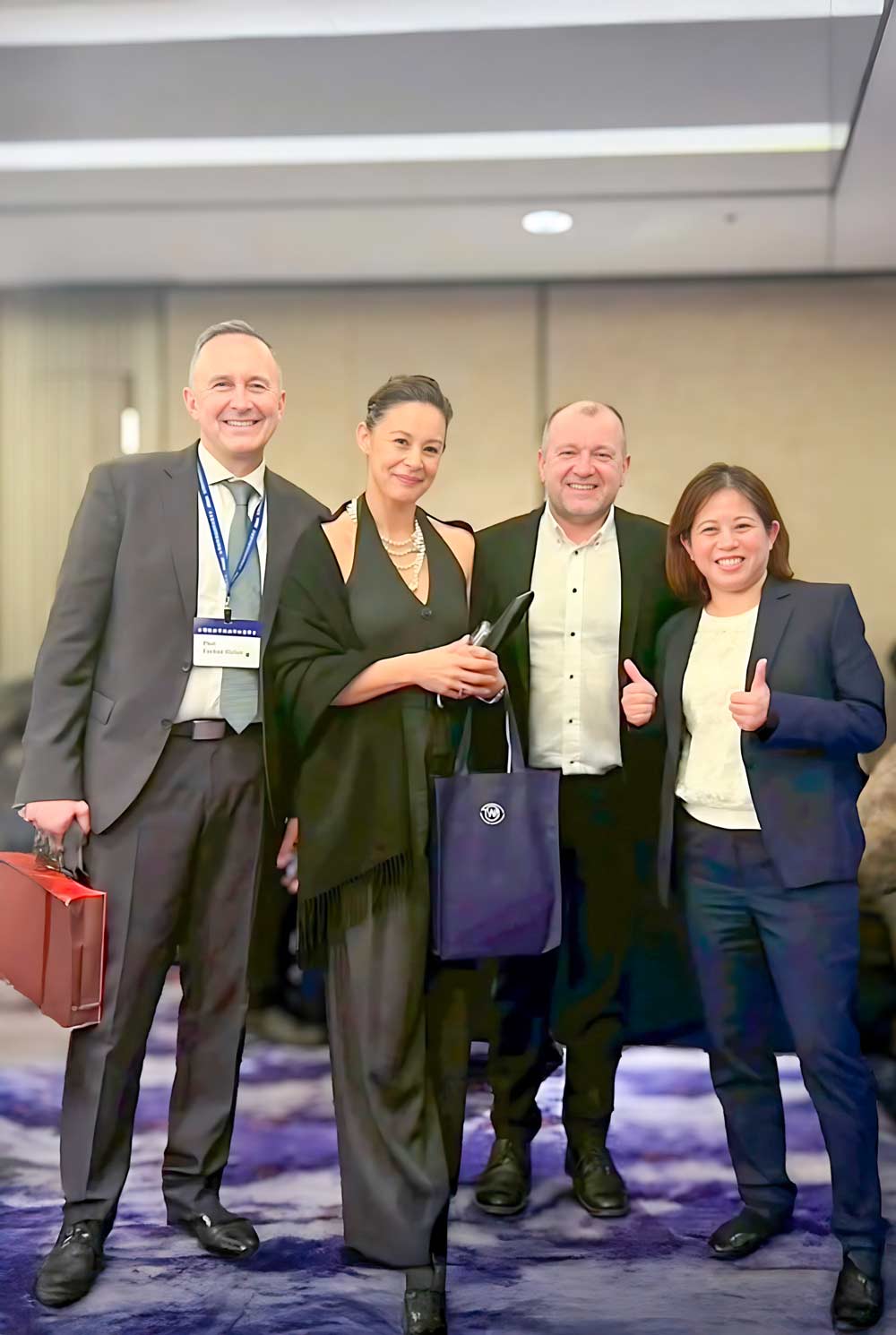In late March 2025, Prof. Farhad Hafezi and ELZA’s CEO, Nikki Hafezi, traveled to Taiwan to participate in the Taiwanese Ophthalmological Society (TOS) National Society Meeting (TOS 2025) and to lead the 2025 CXL Course Taiwan. This trip focused on showcasing the latest advancements in corneal cross-linking (CXL) techniques and advocating for better keratoconus care among vulnerable populations.
During this visit to TOS 2025, Prof. Hafezi’s primary objectives were presenting ECO-CAIRS and ELZA-PACE, two innovative keratoconus treatment protocols, and with Nikki Hafezi, highlighting the Light for Sight Foundation’s work to improve care for children with Down Syndrome.
Presenting at TOS 2025
At TOS 2025, Prof. Hafezi delivered presentations on ECO-CAIRS (Extracorporeal Corneal Allogenic Intrastromal Ring Segments) and ELZA-PACE (second-generation customized CXL). These innovations represent substantial advancements in the field of keratoconus treatment.
- ECO-CAIRS involves pre-treatment of allogenic corneal ring segments with ultra-high-fluence CXL before implantation. This enhances segment stiffness, improves surgical handling, eradicates donor keratocytes, and creates a biocompatible scaffold that integrates effectively into the host cornea and can induce significant cone flattening.
- ELZA-PACE utilizes customized CXL with the excimer laser performing topography guided epithelium removal, allowing for selective treatment of steepest corneal areas while preserving all stromal tissue. By enhancing cross-linking depth and efficacy, it offers improved visual outcomes.
Collaboration with Light for Sight Foundation
Alongside the TOS 2025 meeting, Prof. and Nikki Hafezi engaged in collaborative efforts with the Light for Sight Foundation and other partners, including Children Are Us Foundation, Global Vision, Oculus, Schwind, EMAGine, and CSO Italia Distributors. The focus was on detecting, diagnosing, treating, and managing keratoconus in children with Down Syndrome.
The multi-day program included screenings using the Oculus Pentacam and live demonstrations of epi-on CXL for children with irregular corneas. Educational efforts were also directed towards training professionals on how to conduct screenings for low-compliant patients, aiming to improve early detection and intervention.

Conclusion
Prof. and Nikki Hafezi’s Taiwan trip highlighted their dual commitment to scientific innovation and compassionate care. By presenting groundbreaking techniques like ECO-CAIRS and ELZA-PACE and collaborating on outreach efforts for vulnerable patients, he continues to push the boundaries of corneal cross-linking while promoting equitable access to care.
Stay updated with Prof. and Nikki Hafezi’s work and innovations with ELZA’s Newsletter and on Prof. Hafezi’s Instagram and Nikki Hafezi’s Instagram profiles.
